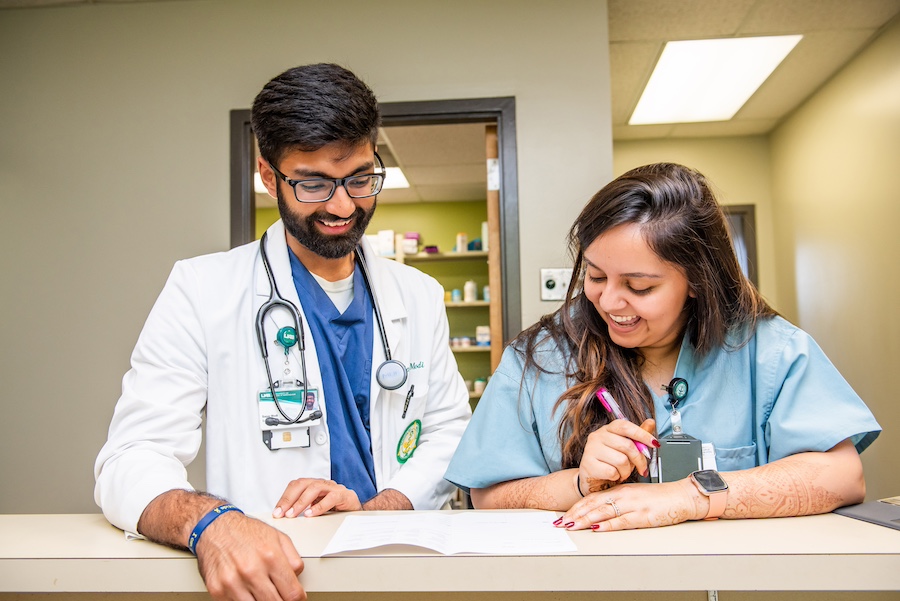
In 2024, 43.4% of our graduates hope to work in the state of Alabama, 24.4% plan to work primarily in an underserved area, and 32.5% plan to care primarily for an underserved population. Therefore, it is vital that Heersink School of Medicine provides its students with the knowledge and skills necessary to support and care for patients from historically marginalized groups.
The goal of this distinction will be to guide students along a pathway to focus their education in a way that allows them to develop expertise in addressing health disparities on both the individual and the population level. Students who complete the pathway will earn the Distinction in Health Equity, which will allow them to be recognized for their expertise.
Students will benefit not only from the recognition this distinction provides but also from the training and the leadership opportunities that are part of the program. Students will be required to complete coursework in health equity, through selected programs such as Health Equity Scholars, CU2RE, or the Albert Schweitzer Fellowship, or selected coursework such as special topics and elective courses in equity-related topics. Offering a variety of paths to earning the distinction allows students to choose the program or course that best fit their interests and career goals. Additionally, once students complete the required training, they will be qualified to teach more junior students and will serve as teaching associates for first- and second-year students in service learning courses.
In addition to the benefits this program will offer students, the Distinction in Health Equity is also designed to yield benefits for the community served by the UAB Heersink School of Medicine. Because students will be required to volunteer at least 60 hours in the community to achieve the distinction, this program is anticipated to significantly enhance the number of hours students engage in community service while in medical school. Spending more time working alongside community members will also help students understand the social determinants of health on a deep and impactful level, allowing them to better serve patients in the long term.
“It is our hope that by creating a clear pathway for students who want to be prepared to care for historically marginalized patients and populations in their future practice, we can move the needle on crucial health issues in our state and in our nation,” said Craig Hoesley, M.D., senior associate dean for Medical Education.
Scholarship is another requirement for the distinction, so more Heersink School of Medicine students are anticipated to work with faculty mentors to answer important questions that will help advance health equity both locally and globally. While this will provide students with important learning opportunities, it may also provide new and innovative solutions to problems in population health.
Providing a Distinction in Health Equity is a way to support and encourage medical students to remember and stay committed to the altruistic reasons that led them to medical school in the first place. Connecting medical students with role models and impactful experiences during their training nurtures their commitment to serving others. Initial responses from UAB Heersink School of Medicine students have been positive, expressing excitement that the Distinction in Health Equity will provide enriching experiences for them and long-term benefits for their patients.